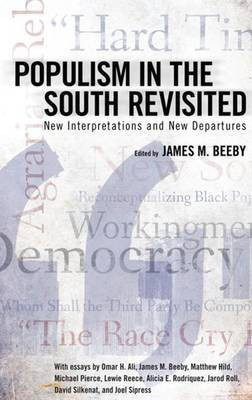Populism in the South Revisited(English, Paperback, unknown)
Quick Overview
Product Price Comparison
The Populist Movement was the largest mass movement for political and economic change in the history of the American South until the Civil Rights Movement of the 1950s and 1960s. The Populist Movement in this book is defined as the Farmers' Alliance and the People's Party, as well as the Agricultural Wheel and Knights of Labor in the 1880s and 1890s. The Populists threatened the political hegemony of the white racist southern Democratic Party during populism's high point in the mid-1890s; and the populists threw the New South into a state of turmoil. Populism in the South Revisited: New Interpretations and New Departures brings together nine of the best new works on the populist movement in the South that grapple with several larger themes - such as the nature of political insurgency, the relationship between African Americans and whites, electoral reform, new economic policies and producerism, and the relationship between rural and urban areas - in case studies that center on several states and at the local level. Each essay offers both new research and new interpretations into the causes, course, and consequences of the populist insurgency. One essay analyzes how notions of debt informed the Populist insurgency in North Carolina, the one state where the Populists achieved statewide power, while another analyzes the Populists' failed attempts in Grant Parish, Louisiana, to align with African Americans and Republicans to topple the incumbent Democrats. Other topics covered include populist grassroots organizing with African Americans to stop disfranchisement in North Carolina; the Knights of Labor and the relationship with populism in Georgia; organizing urban populism in Dallas, Texas; Tom Watson's relationship with Midwest Populism; the centrality of African Americans in populism, a comparative analysis of Populism across the Deep South, and how the rhetoric and ideology of populism impacted socialism and the Garvey movement in the early twentieth century. Together these studies offer new insights into the nature of southern populism and the legacy of the Peoples' Party in the South.


